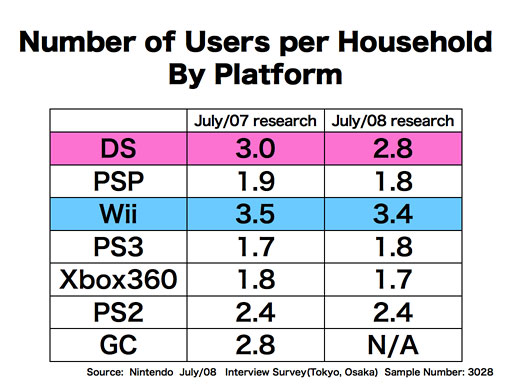Will casuals be important again?
The total sales last generation were:
*100 Million Wii
*78 Million PS3 (according to some people has passed 360)
*78 Million 360
**54 Million active user accounts on Steam.
**24 Million Kinect
Currently we have:
*3.5? Million Wii U
*0 PS4
*0 Xbox One
Will the casual userbase that propelled the Wii and many of the Xbox 360 Kinect sales be important? This at the moment really seems to be one of the big unknowns. As much as it seems right to project the current projections forward the game market itself is being squeezed from both the high end (Steam/PC gaming) and the low end (iPad being *Good* enough). If the casual market doesn't come to the party then the console market as a whole is in for a rough ride. So who's party will the casual market attend? Apple? Microsoft? Nintendo? Sony?
The total sales last generation were:
*100 Million Wii
*78 Million PS3 (according to some people has passed 360)
*78 Million 360
**54 Million active user accounts on Steam.
**24 Million Kinect
Currently we have:
*3.5? Million Wii U
*0 PS4
*0 Xbox One
Will the casual userbase that propelled the Wii and many of the Xbox 360 Kinect sales be important? This at the moment really seems to be one of the big unknowns. As much as it seems right to project the current projections forward the game market itself is being squeezed from both the high end (Steam/PC gaming) and the low end (iPad being *Good* enough). If the casual market doesn't come to the party then the console market as a whole is in for a rough ride. So who's party will the casual market attend? Apple? Microsoft? Nintendo? Sony?


